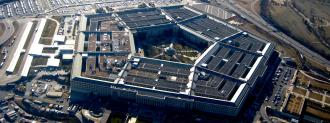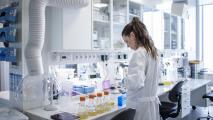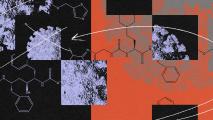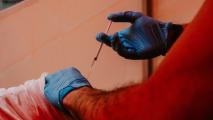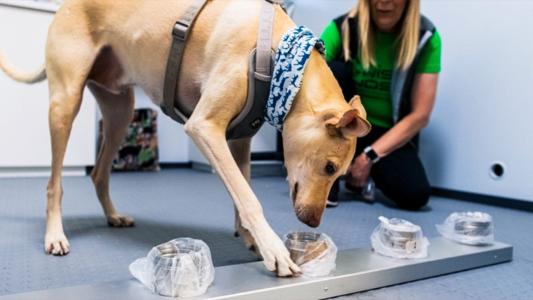Drawing upon thousands of personnel and wearable devices capable of detecting minute changes in the body, the Department of Defense is initiating a study on the early detection of COVID-19, the Wall Street Journal reports.
The goal is to see if it is possible to identify, and quarantine, people infected with SARS-CoV-2 before they even know to get tested. By detecting and isolating asymptomatic cases (people who never feel sick) and pre-symptomatic cases (people who do not feel sick yet), the hope is that transmission of the virus can be curbed.
The study will be conducted with healthtech company Koninklijke Philips. The Dutch concern and the DoD have been working for over a year on an AI algorithm to detect infections of all sorts of viruses up to 48 hours before symptoms appear; this study will apply that work to the new coronavirus.
Officials are looking to enroll over 5,000 subjects, the WSJ’s Ben Kesling and Nancy A. Youssef report; outfitted with wearables that detect COVID-19 symptoms, the subjects will provide real-time data that can be used to predict an infection — hopefully before the virus, a more efficient invader than any military, can spread to others.
But all studies have limitations, and the comparatively young and healthy subject pool in the military poses questions about how early detection of COVID-19 in DoD personnel could be translated to the general public.
The Pentagon vs. Pathogens
As Kesling and Youseff point out, this is not the first time that the Pentagon has decided to wage the invisible war. Perhaps most famous was Maj. Walter Reed’s proving (through a human challenge trial, which claimed a life) the theory of Cuban doctor Carlos Finlay that mosquitoes were to blame for the transmission of yellow fever.
The Pentagon’s biological weapons programs at Fort Detrick in Maryland also eventually morphed, in the late 1960s, into the defense-and-health focused USAMRIID, a highly respected group of researchers, virus hunters, and disease detectives.
The DoD partnership with Koninklijke Philips began as an innovative way to detect common-but-problematic pathogens like influenza before they could rip through the military’s ranks, Kesling and Youssef write.
Already 1,000 troops are wearing the detectors, which feed data to the company’s system. Per the Journal, the RATE system tracks biomarkers and compares them to data from millions of previously tracked patients. (This notably does not include location data, which has given away sensitive information before.) Troops are then notified if their bodies seem to be exhibiting signs of infection.
Early Warning — but Not Foolproof
“We compare it to the check engine light in your car,” Christian Whitchurch, the DoD’s Defense Innovation Unit human systems director, told the Journal.
“When something goes wrong, you’re told to go see the mechanic.”
Already, Kesling and Youssef report, DoD officials claim the pilot has provided early detection of COVID-19 in “multiple cases,” though the article does not include a more specific number.
Defense Threat Reduction Agency official John Hannan told the Journal that potential biomarkers of SARS-CoV-2 infection include tiny changes in blood oxygen levels and heart and respiratory patterns.
“There are subtle changes in physiology that aren’t easy to detect under regular clinical means. You can see these changes before they become symptomatic,” Dr. Joseph Frassica, head of Philips research in the Americas, told the Journal.
By tracking these symptoms, early detection of COVID-19 may be possible, and researchers may gain valuable insights into asymptomatic and pre-symptomatic spread, SARS-CoV-2’s maddeningly effective invasion plan.
We’d love to hear from you! If you have a comment about this article or if you have a tip for a future Freethink story, please email us at [email protected]
